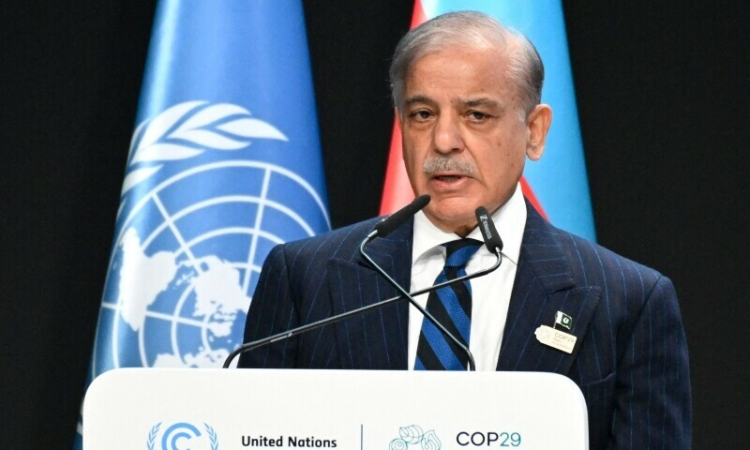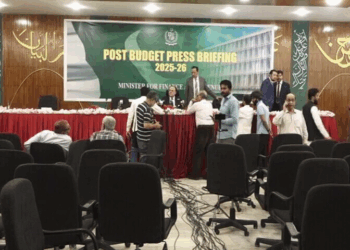Islamabad, November 13, 2024 – Prime Minister Shehbaz Sharif underscored the urgent need for international support and fair financing at the COP29 Climate Action Summit in Baku, Azerbaijan, stressing that true resilience against climate impacts requires climate justice and robust funding mechanisms for developing nations.
“As low-emission nations, we should not bear the disproportionate impact of emissions caused by others, especially without adequate resources to build resilience. Without climate justice, resilience remains a distant goal,” said Prime Minister Sharif.
Nearly 200 countries are gathered at COP29 to negotiate new climate funding solutions aimed at advancing clean energy transitions and helping vulnerable nations adapt to rising global temperatures. The summit seeks a commitment of trillions of dollars in climate financing worldwide.
The Prime Minister highlighted Pakistan’s recent climate vulnerabilities, referring to the devastating floods in 2022, and reaffirmed Pakistan’s commitment to being a proactive partner in global climate solutions. “Pakistan is a resilient, responsible nation, fully dedicated to contributing to global climate action,” he said.
Sharif detailed Pakistan’s ambitious targets, including generating 60% of its energy from clean sources and transitioning 30% of vehicles to electric by 2030. Additionally, he noted Pakistan’s progress in creating a national adaptation plan and a carbon market framework as of 2024.
Despite these strides, he stressed that Pakistan requires international backing to achieve its climate goals. Developing nations, he noted, will need approximately $6.8 trillion by 2030 to meet even half of their current climate commitments.
The Prime Minister reiterated the need for grant-based climate financing rather than loans, emphasizing that such funding should not exacerbate the debt burdens of developing countries. “Climate finance must be in the form of grants, not loans. I warned two years ago that inaction would have dire consequences. Today, I repeat this call.”
In 2009, wealthier countries pledged $100 billion annually to aid developing nations in adapting to climate change, a promise fulfilled only recently in 2022. However, this pledge expires this year, and nations are now negotiating an increased target. There is a growing interest in a multi-tiered financing structure, including contributions from government coffers as well as from multilateral and private sources.
Sharif called for COP29 to reaffirm these financial commitments, stating, “The financial pledges made in COP27 and COP28 must be honored.”
The issue of climate finance has sparked global debate, with countries contending over responsibilities to fund resilience measures against a warming world. Human activities, primarily fossil fuel burning, have driven the planet’s average temperature up by approximately 1.3°C, intensifying extreme weather events like floods, hurricanes, and heatwaves.
Experts caution that current global emissions reduction plans are insufficient, and the upcoming UN deadline for updated national climate commitments in 2025 represents the last major chance to avert catastrophic warming. Should COP29 fail to secure a significant funding agreement, countries may be compelled to propose weaker climate targets, citing affordability challenges.
Notably, Africa’s 54 countries have received only 2% of global renewable energy investments over the last 20 years, as climate-friendly spending remains heavily concentrated in major economies such as China and the United States.








